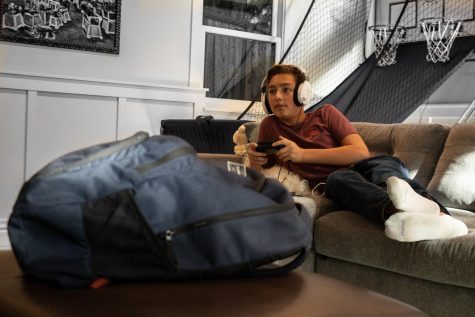
Twitter: @arghazouli

Twitter: @FiniganOwen
April 27, 2020

Currently, the stigma around procrastination causes many to wince at the thought of actively putting off work. While some quickly accept the idea that procrastination can be helpful, others are more reluctant to come around on the issue.
“I don’t really think procrastination would help overall. I think that mainly procrastination just adds to student stress,” said Kristin Vernon, a Carlmont counselor.
Some may even be a little skeptical right now, wondering about all the other studies showing how bad procrastination is. Addressing this is simple; procrastination is bad, but only when it is utilized incorrectly.
Studies like those by Aliza Rotenstein, Harry Z. David, and Lawrence Tatum show that procrastination leads to lower grades and overall performance. However, this study focuses on chronic procrastinators versus early birds, which is not active procrastination. This study, in particular, fails to even address other forms of procrastination.
“Depending on the reason for procrastination, mild or active procrastination can promote increased motivation, focus, attention, and creativity. This will contribute to the desired outcome and a better quality product,” said Elda Aghazarian, Carlmont’s psychologist.
Some have already inadvertently felt the benefits of active procrastination. Take one Carlmont sophomore as an example.
Maria Valle Remond gets home at about 4 p.m. every day. Like many other high school students, Valle Remond often has to stare down a daunting amount of homework while still feeling the exhaustion from a long day of lectures and assessments.
However, despite what many are conditioned to believe, Valle Remond recognizes that a late start to her school work may even be beneficial.
“Starting homework a bit later allows you to just destress from everything you went through at school for 7 hours and just relax and do whatever. This allows you to feel recharged and more motivated to do work later,” Valle Remond said.
Valle Remond also acknowledges how a little bit of pressure often helps her think in more abstract ways.
Recently, procrastination has been estimated to affect an astounding 80% to 95% of college students, according to a study by the American Psychological Association. However, their procrastination-free peers may have a habit just as detrimental as passive procrastination.

